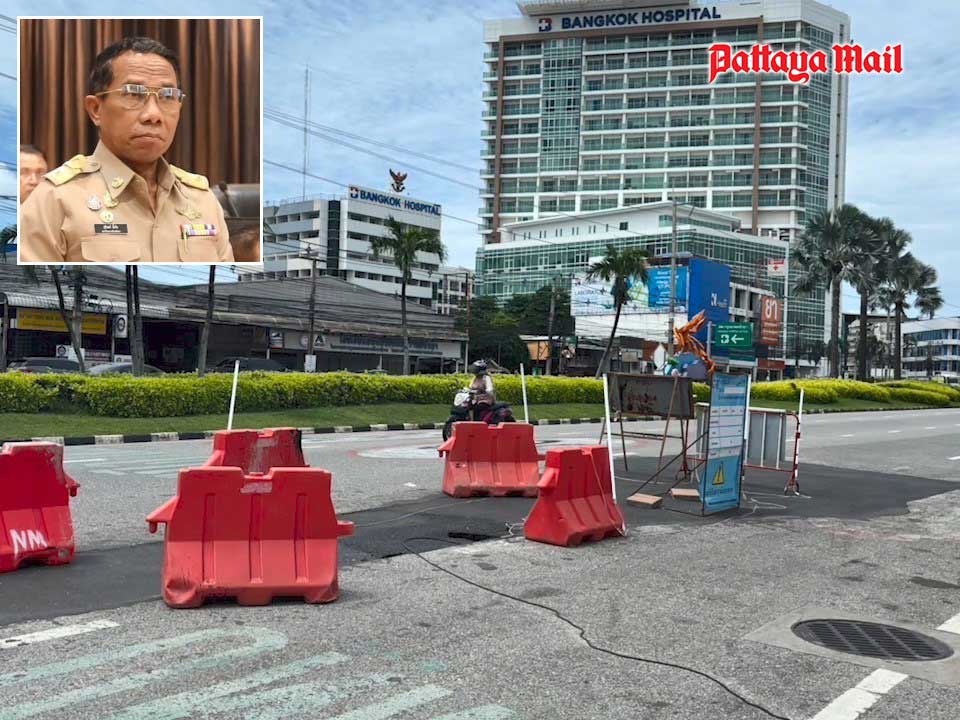
PATTAYA, Thailand – A Pattaya City Council meeting turned contentious as Councillor Surin Yimyai launched a scathing critique of utility agencies, accusing them of leaving the city’s roads in disrepair following numerous excavation projects. His criticism reflects growing frustration from both residents and tourists over the deteriorating road conditions caused by ongoing infrastructure work.
“Everywhere you look, there are open trenches and uneven roads,” Surin said during the meeting. “These projects are supposed to benefit our city’s future, but the way they are handled is completely unacceptable.”
Surin pointed to the frequent road excavations for utility and communication network installations, particularly the ongoing underground electrical cabling project. While acknowledging that these developments are crucial for urban growth, he criticized the external utility agencies responsible for failing to restore the roads to their original condition after completing their work.
“These projects are not being managed by Pattaya City authorities, yet we are left to deal with the consequences. Contractors are leaving our roads cracked, uneven, and hazardous,” he said. Surin highlighted that roughly 70-80% of these projects fail to meet basic quality standards. He expressed frustration over the lack of oversight, stating that inspections focus solely on the contracted work rather than ensuring the roads are properly restored.
“Once the installations are done, these contractors disappear, leaving behind potholes and sloppy resurfacing. Sukhumvit Road, from Naklua to Pattaya City School No. 4, and the area in front of Bangkok Pattaya Hospital, are prime examples of this mess,” he remarked.
Surin urged the city administration to convene with relevant utility agencies and establish strict regulations to hold contractors accountable for restoring roads and sidewalks to safe and durable conditions. “This is a public safety issue. We cannot continue to allow contractors to destroy our infrastructure and walk away with no consequences,” Surin concluded.








